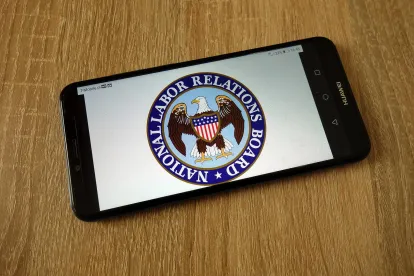On February 21, 2023, the National Labor Relations Board (“NLRB” or the “Board”) decided in McLaren McComb that an employer commits an unfair labor practice when it presents a non-supervisory employee with a proposed severance agreement containing broad confidentiality or non-disparagement provisions. Reversing two earlier decisions by the previous Republican-majority NLRB in 2020, a majority of the presently constituted Board opined that broad confidentiality and non-disparagement terms “have a reasonable tendency to interfere with, restrain, or coerce employees in the exercise” of rights guaranteed under Section 7 of the National Labor Relations Act (the “Act”), which include the right to engage in “concerted activity” for “mutual aid and protection.”
Confidentiality and non-disparagement provisions are commonplace in severance agreements. Employers have relied on these tools for years to condition payment of severance benefits on departing employees’ commitment not to malign their employers or disclose the terms of their severance packages. But it’s this chilling effect on speech with which the Board took issue in McLaren McComb, finding that clauses like these interfere with employees’ ability to discuss terms and conditions of their employment, assist employees of their former employer, or communicate with their union representatives (if applicable). Indeed, the Board found broad nondisclosure and non-disparagement terms to so significantly impair employees’ ability to engage in concerted activity for their mutual aid and protection that it concluded the mere act of presenting a severance agreement with such terms violates Section 8(a)(1) of the Act, even if the employee never signs and the employer never enforces the agreement.
We could spill a lot of ink (devote many pixels?) analyzing the Board’s decision or its rationale for finding unlawful terms long incorporated into mutually beneficial employer-employee severance agreements just three years after finding such terms unproblematic. But the practical questions employers want answered are: What do we do now? Do we scrap our existing form severance agreements? Strip them of confidentiality and non-disparagement terms altogether? Is there any middle ground?
First, an appeal of the Board’s decision is a near certainty, so this analysis applies at least until a federal appeals court reviews the NLRB’s decision. Whether the decision stands at that point dictates what happens after that point. But at least until then, McLaren McComb holds that an employer commits an unfair labor practice by presenting a non-supervisory employee a severance agreement that requires the employee to keep the agreement’s terms (or other employer information) confidential, or an agreement that broadly prohibits the employee from saying things to third parties that may be disparaging of the employer (or both).
As a technical matter, NLRB orders are not self-enforcing, and therefore, until a reviewing court enforces the Board’s order in McLaren McComb, the case isn’t over. But as far as the NLRB is concerned, it has made its decision, so if an employer flouts that order, it risks committing an unfair labor practice. Not an appealing option to most employers.
At the other end of the spectrum, the most risk-averse employers may choose to omit any confidentiality and non-disparagement terms from its severance agreements. This would comport with McLaren McComb, but what if there were some middle ground? Unfortunately, the NLRB did not provide any guidance as to how confidentiality or non-disparagement terms could be included in a severance agreement without, in its opinion, violating the Act, but it would be reasonable to presume that explicit statements that confidentiality and non-disparagement terms are not intended to and will not be enforced by the employer in such a way as to restrict the employee or any other employee from engaging in any rights guaranteed under the Act, might salvage otherwise unlawful terms.
The Board’s decision also left a number of questions unresolved, including whether a savings clause like that discussed above would negate any tendency to interfere with Section 7 rights. The NLRB also gave no indication whether it will apply its decision retroactively to existing severance agreements, nor did it indicate what effect involvement of a union or an employee’s own counsel in negotiating the terms of the severance agreement might have on the enforceability of these terms.
One last important point here. The restrictions imposed by the NLRB in McLaren McComb apply only to employees, as that term is defined in the Act. Executives, managers, and supervisors who possess the authority to hire, fire, promote, lay off, impose discipline, or take other supervisory action with respect to employees (as defined in Section 2(11) of the Act) are not themselves employees under the Act. Therefore, the NLRB’s ruling does not impair the ability of employers to enter into severance agreements with them containing broad confidentiality and non-disparagement terms.
In times like these when sizable layoffs are reported nearly every day, the Board’s decision adds another complication for employers. We’ll certainly be watching for developments here and will update as they happen.




 />i
/>i

